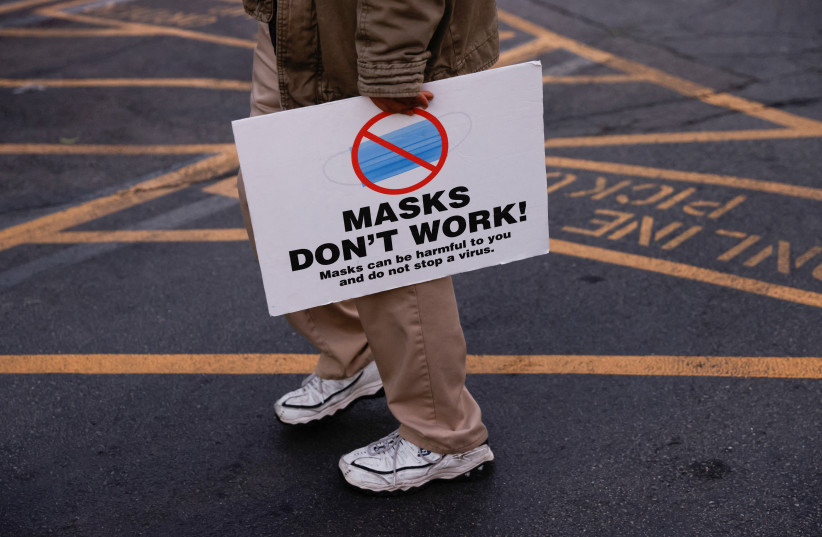For the first time in two years, a majority of Americans now believe COVID-19 should not be considered a major threat to public health, The Pew Research Center has found in a new poll.
When asked to assess the level of threat the coronavirus poses, 58% of Americans stated they believe COVID-19 is either a minor threat or not a threat at all. 41% of respondents said coronavirus should still be considered a major threat to public health.
The poll, conducted in May, marks the first Pew poll since March 2020, at the onset of the worldwide corona outbreak, in which most Americans don't see the virus as a threat to their health.
At the height of the pandemic in the US, two-thirds of Americans (67%) considered COVID-19 as a serious threat to public health.
A plurality of Americans believe the United States has given too little priority to supporting the economy, education and the overall quality of life of the American public amid the COVID-19 pandemic, Pew also found.
As the spread of coronavirus becomes more contained in the US due to vaccines, Pew asked American citizens to evaluate the government's balancing of priorities during the course of the pandemic.

Most respondents agree that education was given too little priority during the pandemic, with 62% stating the US government did not meet the educational needs of K-12 students.
31% believe education was given an adequate level of priority and 6% responded that it was given too much priority.
Political divisions
As expected, Americans are also split along partisan lines on key issues concerning the government's response to the pandemic. Republicans were found to be more negative toward public health officials than Democrats, a downwards trend that began after the pandemic hit the US.
72% of Democrats said public health officials are doing an excellent or good job, compared to only 29% of Republicans. In contrast, A large majority of Republicans (84%) agreed with Democrats on this issue back in March 2020.
Republicans and Democrats are also divided on the key issue of the government respecting individual choices, in the context of restrictions imposed on the unvaccinated.
69% of Republicans or Republican-leaning respondents said the US put too little priority on their individual rights. On the other hand, only 28% of Democrats believe the same.
